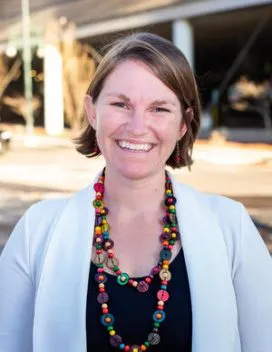More about Annie
What is your current job and how did your planning degree prepare you for it?
I currently wears two hats: one as Executive Director of Africa’s Tomorrow, a nonprofit which assists African women in to earn cross-cultural education at the college level; and the second as the Founder & CEO of Workplace Equity Partners, a firm working to center shared human experience in the workplace as a powerful lever for social justice. I previously served as a US Peace Corps Volunteer in Zambia, hand-built a log cabin, farmed lettuce in Hawai’i, and amplified Brazilian activists. Along the way I designed and led four social justice research studies on three continents that have directly impacted food security, environmental justice, housing justice, and low-income mothers’ access to quality jobs. The urban planning degree offered me hands-on experience in resiliency planning and how to create redundancies to weather crisis and change in a system and build in meaningful representation to ensure equitable outcomes. These skills are the bedrock of both positions, grounding my organizational management practice in equity.
Why did you choose to study urban planning?
I saw in my international development career that the social issues around the globe had deep interconnections, but that the solutions were being worked on in silos. I saw urban planning as an umbrella discipline that would give me the opportunity to work at the connections among those issues. I wasn’t wrong; as I grow to better understand systems thinking, it’s precisely at those interconnections that I believe solutions to social issues can see acceleration.
What advice would you share with someone who is considering a career in urban planning?
My advice would be: chat with planners who don’t work in traditional planning jobs, as well as those that do, to see a variety of ways you can use these skills. Make sure you to critically evaluate the perspectives of people who have always held power.
